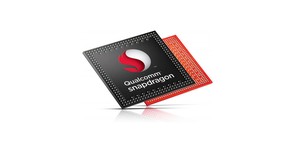IBM shows off first 7nm FinFET chip
July 9, 2015 | 11:21
Companies: #globalfoundries #ibm #intel #samsung

IBM has announced the creation of its first fully-functional transistor-based semiconductor based on a 7nm process, a year after launching a joint research programme with Samsung and GlobalFoundries to develop the technology.
The semiconductor industry is driven by Moore's Law, the observation turned hard-and-fast rule by Intel co-founder Gordon Moore that the number of transistors on an integrated circuit tends to double every eighteen months. As continued doubling at the same feature sizes would have us now using processors the size of football pitches, the industry generally achieves this by shrinking the size of the components it uses. With modern chips pushing at the boundaries of physics thanks to ever-smaller sizes, however, the industry is beginning to struggle to keep up.
Last year, IBM announced that it was launching a $3 billion research initiative to develop 7nm 'and beyond' process nodes. 'The question is not if we will introduce 7 nanometre technology into manufacturing, but rather how, when, and at what cost,' explained John Kelly, senior vice president at IBM Research, at the time. 'IBM engineers and scientists, along with our partners, are well suited for this challenge and are already working on the materials science and device engineering required to meet the demands of the emerging system requirements for cloud, big data, and cognitive systems. This new investment will ensure that we produce the necessary innovations to meet these challenges.'
Now, the consortium involved in the project - which includes the State University of New York (SUNY), Samsung, and GlobalFoundries, which recently acquired IBM's semiconductor manufacturing business - has announced success. According to a report on the companies' announcement in the New York Times, the company has successfully produced prototype chips featuring 7nm finFET transistors by switching the silicon typically used in semiconductors for a silicon-germanium mix.
The announcement comes as rumours spread that Intel is struggling to hit its next shrinkage goal, delaying its planned 10nm Cannonlake product in favour of a tweaked 14nm variant built on the same process size as its current chips. That said, IBM has admitted that its chip is not ready for mass production just yet, but plans to continue its $3 billion programme despite having sold its entire chip manufacturing concern to AMD spin-off GlobalFoundries.
The semiconductor industry is driven by Moore's Law, the observation turned hard-and-fast rule by Intel co-founder Gordon Moore that the number of transistors on an integrated circuit tends to double every eighteen months. As continued doubling at the same feature sizes would have us now using processors the size of football pitches, the industry generally achieves this by shrinking the size of the components it uses. With modern chips pushing at the boundaries of physics thanks to ever-smaller sizes, however, the industry is beginning to struggle to keep up.
Last year, IBM announced that it was launching a $3 billion research initiative to develop 7nm 'and beyond' process nodes. 'The question is not if we will introduce 7 nanometre technology into manufacturing, but rather how, when, and at what cost,' explained John Kelly, senior vice president at IBM Research, at the time. 'IBM engineers and scientists, along with our partners, are well suited for this challenge and are already working on the materials science and device engineering required to meet the demands of the emerging system requirements for cloud, big data, and cognitive systems. This new investment will ensure that we produce the necessary innovations to meet these challenges.'
Now, the consortium involved in the project - which includes the State University of New York (SUNY), Samsung, and GlobalFoundries, which recently acquired IBM's semiconductor manufacturing business - has announced success. According to a report on the companies' announcement in the New York Times, the company has successfully produced prototype chips featuring 7nm finFET transistors by switching the silicon typically used in semiconductors for a silicon-germanium mix.
The announcement comes as rumours spread that Intel is struggling to hit its next shrinkage goal, delaying its planned 10nm Cannonlake product in favour of a tweaked 14nm variant built on the same process size as its current chips. That said, IBM has admitted that its chip is not ready for mass production just yet, but plans to continue its $3 billion programme despite having sold its entire chip manufacturing concern to AMD spin-off GlobalFoundries.

MSI MPG Velox 100R Chassis Review
October 14 2021 | 15:04








Want to comment? Please log in.